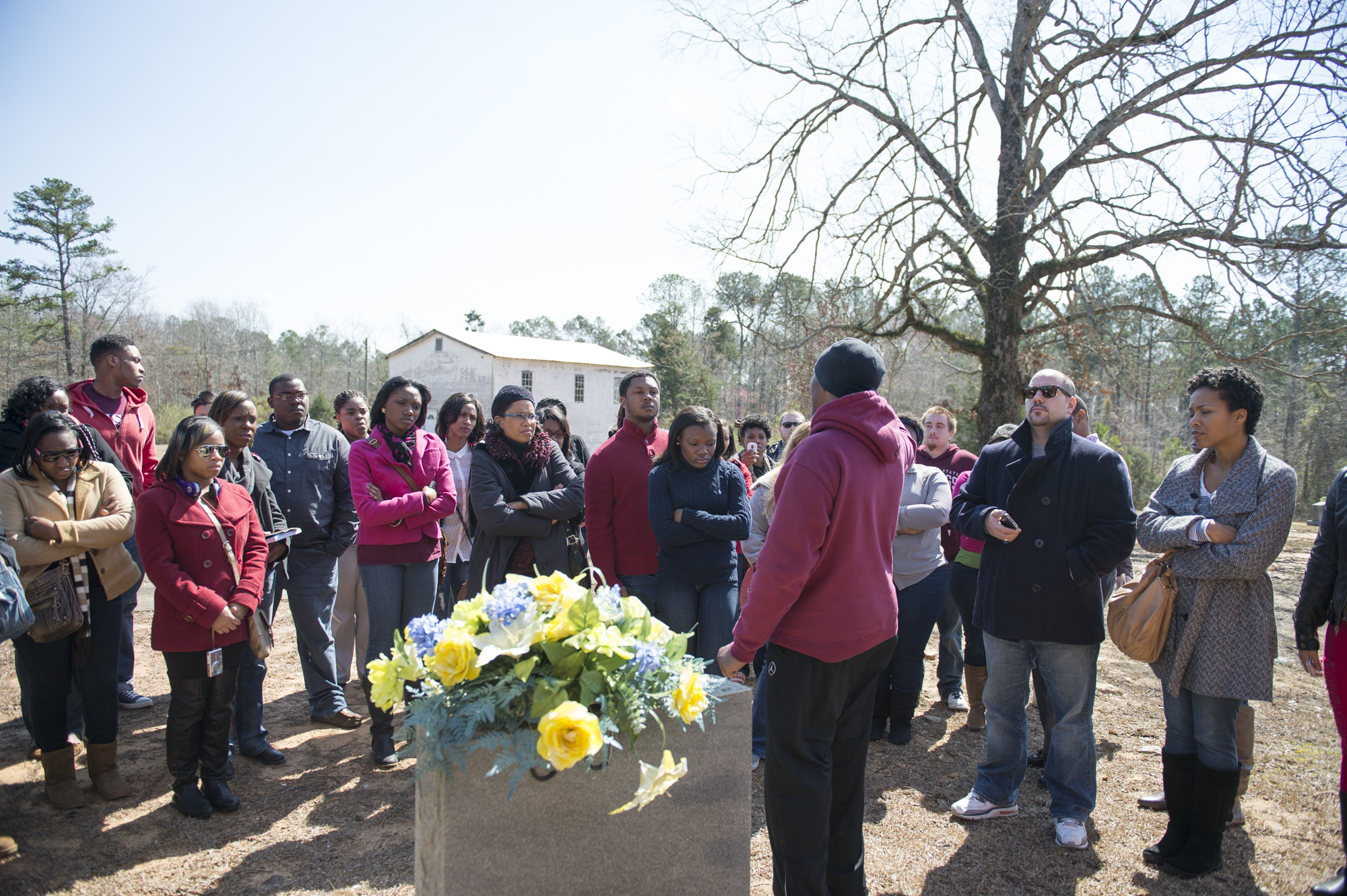Contact: Leah Barbour

Photo by: Megan Bean
PHILADELPHIA, Miss.--More than 50 Mississippi State University students recently travelled to Philadelphia to learn more about what happened to three civil rights activists who were murdered there in 1964.
The annual Civil Rights Tour, sponsored by MSU's African-American Studies program, allows students to visit sites where people fought -- and sometimes died -- so all Americans can enjoy civil liberties.
The diverse group of students -- some pursuing minors in African-American Studies and others interested in history -- learned about the murders of James Chaney, Andrew Goodman and Michael Schwerner, three young men who believed in equality for all people and were murdered by the Ku Klux Klan at a crossroads in Philadelphia.
The tour group visited the site of the civil rights activists' murders, as well as the jail where the men were held and the church they had initially come to town to visit.
Seeing the places where people stood up to intimidation and where people died strongly impacted students. Participants agreed that learning about the events that took place almost 50 years ago was the only way to ensure such terrible violence never occurs again.
"Civil rights: it really teaches you a lesson," said junior Antwanise Harris, biological sciences/pre-med major from Leland. "You can grow from it -- not just African-Americans in general, but also other people. They have a chance to look back on everything that happened throughout the civil rights era to learn from what happened to African-Americans during that time."
Philadelphia-native Leroy Clemons led the driving tour throughout the community and explained what he had seen, heard and learned over the past 49 years as he watched events unfold. He emphasized that the only way to create lasting change from the violence common to the civil rights movement is to understand why it happened in the first place.
"The reason we're doing this tour today is so you can learn what happened. But more importantly, I want you to understand why these things happened," Clemons said. "Because it's not enough for you to know what happened. If I just tell you what happened, you'll leave here with hate in your heart, but I want you to understand why it's important."
Chaney, Goodman and Schwerner were arrested by Deputy Sheriff Cecil Price on June 21, 1964, and were held in Neshoba County Jail while Edgar Ray Killen set up the ambush that ended with their murders, Clemons said.
Clemons said that, though Price was unrepentant in the 1960s, Price did confess his KKK-affiliation and his guilt in the murders to authorities in 1999. Clemons said Price offered to testify against his co-conspirators, but he died in 2001.
Harris and other students agreed they were amazed that, even in 2013, there are still conflicts in the story about what happened in relation to those three civil rights activists' murders.
In addition to touring the town, MSU students met Philadelphia's first African-American mayor, James A. Young. He emphasized the importance of dialogue and respecting differences.
"We cannot change what happened 50 years ago or 100 years ago," Young said. "But we can set our sights to make sure it never happens again."
MSU senior Keonshae Freeman, a food science, nutrition and health promotion major from Biloxi, explained how visiting Philadelphia inspired her to ask her grandmother whether she had experienced segregation. She attended a segregated school until she was in 10th-grade, and Freeman said she had never before realized how segregation had impacted her own family members.
"She's been here all of my 21 years of living, and I didn't know that she went to a segregated school," Freeman said.
Freeman said she hopes her peers will open more conversations about civil rights with their elders so more young people can learn from first-hand accounts while they still have the opportunity.
MSU's African-American Studies program is open to all students and welcomes all scholars, regardless of their field of study, said graduate teaching assistant Aaron Rollins, who teaches the introductory African-American Studies course. Students who complete 18 hours in African-American Studies can earn a minor in the subject.
To learn more or to sponsor the program, call 662-325-0587 or visit http://www.aas.msstate.edu/.